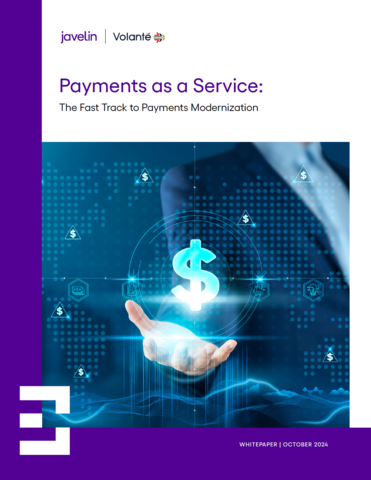AI: the CFO’s secret ace

Tim Wakeford at Workday describes how AI is reinvigorating strategy at the top
Chief financial officers (CFOs) face mounting challenges as they try to keep up with a world in flux. The pressure to meet investor demands has never been higher; economic uncertainty continues and now, CFOs have to contend with the management and analysis of rapidly growing datasets.
Simply put, CFOs are struggling to keep up with the expectations placed on them and in their hunt for efficiency, it’s becoming clear that new solutions are needed. It’s a tall order, and the search is on for tools that can simplify this growing workload.
AI is emerging as a solution, yet few finance departments are using it to its full potential. To truly unlock the capabilities of AI, CFOs and their teams must be empowered to implement it responsibly and effectively.
AI and the future-ready finance department
According to Gartner, finance teams have yet to be convinced by AI – 80% of finance teams that use the technology have only started doing so in the past two years, even if finance AI is nothing new. In other words, uptake is sluggish.
Yet these same teams stand to gain massively from AI and the capabilities it offers – given the pool of data that financial departments have to track, manage and audit is growing at an unprecedented pace.
Part of this data growth stems from the digitalisation of business, meaning that customers are generating useful – but ultimately unstructured – data whenever services are used. However, when structured and applied, these insights will be worth gold – in fact, the global data market is set to hit $78 billion by 2025.
Until now, realising that value by manually analysing data has been a time drain for finance teams. This is where AI comes in: cutting the time to get meaningful insights and ensuring CFOs acquire the informed analysis they need to drive decision-making in the boardroom.
Implementing AI within finance
So, how can we implement AI more successfully in the finance function?
To start, safety and trust are an essential baseline for any AI strategy in finance – and for most businesses, there’s work to do here. People won’t use the AI otherwise and if they do, they won’t trust it. Workday found that only 55% of employees globally are confident their organisation will ensure AI is implemented in a trustworthy and responsible way.
For CFOs, this trust issue is particularly sensitive as their departments manage one of a company’s most essential assets: its money. As such, CFOs must implement AI into their operations through a ‘human-in-the-loop’ approach, which prioritises safety, trust and human control over decision-making.
For example, AI can be used in finance teams to assist in forecasting and planning, as well as anticipating demand. Doing so in large organisations can require crunching vast swathes of data, which AI can assist with.
However, once that data has been analysed, the human comes in. A financial expert completes the puzzle by assessing the insights the AI system has generated and determining the next step. This approach minimises risks while bolstering informed and rapid decision-making.
Making the decision to use AI is only half the battle, though. CFOs need to ensure their teams are taught how to use the technology and are upskilled where necessary. As with any leadership position, they can do this by advocating for AI training company-wide, assisting in building a culture of trust and leading by example, by using the technology themselves.
Finally, there are compliance considerations. Regulatory authorities and governing bodies around the world are rightfully building AI policy to ensure its responsible implementation. For instance, in March of this year, the European Parliament adopted the world’s first comprehensive AI law, the EU AI Act, which classifies AI products according to risk categories
It is therefore crucial that AI strategies adhere to the rules and regulations governing their use. This is aligned with Workday’s AI approach, which is predicated on developing responsible AI systems and managing the risks associated with them.
Finance teams should seek AI solutions that showcase a responsible, trustworthy and transparent approach – in contrast, opacity is a red flag.
A rising tide raises all boats
AI is already making waves in finance and those waves are only going to grow.
Finance departments stand to gain immense benefits from the responsible use of the technology, but this won’t happen without intentional actions. CFOs need to play a part in building an AI culture within their department, one which is predicated on trust and the effective use of the technology.
If they do, navigating current challenges will be made considerably easier and the pressure on teams will be eased. As data crunching and analysis is accelerated by AI, teams are freed up to focus on making strategic decisions, rather than being bogged down by repetitive tasks.
The potential value generated by AI in finance departments is clear: more efficient and empowered teams taking data-driven decisions that propel the finance team and its business forward. Now, it’s time for CFOs to select the trusted tools, and cultivate the right culture, to unleash that AI-powered potential.
Tim Wakeford is VP Financials Product Strategy at Workday
Main image courtesy of iStockPhoto.com and martin-dm

Business Reporter Team
Most Viewed
Winston House, 3rd Floor, Units 306-309, 2-4 Dollis Park, London, N3 1HF
23-29 Hendon Lane, London, N3 1RT
020 8349 4363
© 2024, Lyonsdown Limited. Business Reporter® is a registered trademark of Lyonsdown Ltd. VAT registration number: 830519543





